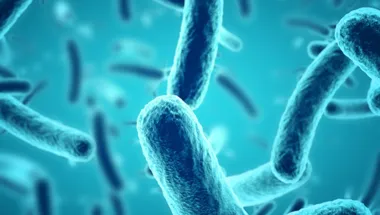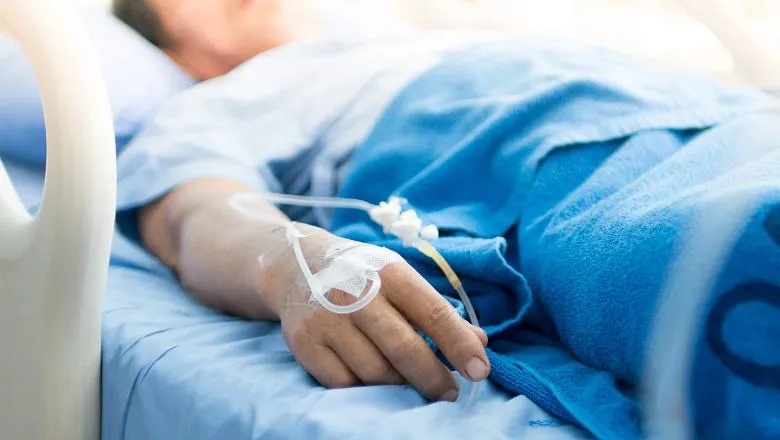
Professor Mahvash Tavassoli
Professor of Molecular Oncology
Research interests
- Host-Microbiome Interactions
Biography
Professor Mahvash Tavassoli completed her DPhil in Biochemistry studying molecular mechanisms of cellular senescence and immortalisation in 1987 at the University of Sussex, under the supervision of Prof Sydney Shall. After completing her PhD, Mahvash obtained an International Union Against Cancer (UICC) postdoctoral training fellowship in the laboratory of Professor Robert Eisenman at the Fred Hutchinson Cancer Research Centre in Seattle, USA to study the role of C-Myc oncogene.
On her return to the UK, she was offered a postdoctoral Fellowship in the Medical Research Centre at the University of Sussex to research the role of the EGFR receptor family tyrosine kinases in breast and ovarian cancer. In 1990 Mahvash was awarded a young career Research Fellowship by the Cancer Research CRUK to establish her own group to continue investigating the mechanism of c-erbB2 signalling activation. In 1993 she was awarded an EMBO fellowship to work in the laboratory of Professor Axel Ullrich at the Max Planck institute in Munich.
In April 1995 Mahvash was appointed Lecturer in the Department of Oral Medicine and Pathology at King’s College London. In Sept 2000 she was promoted to Senior Lecturer and in 2006 to Reader in Molecular Pathology. In September 2007 she was appointed Professor of Molecular Oncology where she currently leads a research team, within the Centre for Host Microbiome Interactions, Faculty of Dentistry, Oral & Craniofacial Sciences.
The focus of her research is developing molecular strategies to enable early detection and improve treatment of head and neck cancers. Mahvash's work has led to new insights into causes of radiotherapy resistance in head and neck cancer patients with a particular focus on the role of tumour hypoxia and interaction of cancer cells with the tumour microenvironment including cancer associated fibroblasts and cancer stem cells. This work is highly collaborative and includes development of 3D and microfluidic models for testing single and combination treatment with novel targeted therapies. Hypoxia molecular signature and biomarkers have been generated for patients’ treatment stratifications and tailored treatment.
An additional area of research involves the synthesis and labelling of a tumour selective cytotoxic drug apoptin as an efficient and less toxic cancer drug. This is being done in close co-operation with the King's Chemistry Department through joint funding and co-supervision of PhD students with Dr Manuel Muller, and the ongoing research of Dr Adam Sedgwick. There is interest from industry in this project.
The research of Mahvash's group in both basic and clinical translational projects has led to collaboration with leading international, multicentre interdisciplinary groups as is evident from her publications (listed below) and funding. Current research is supported by CRUK, charity and international partnership grants; past studies in her lab have been supported by grants from peer reviewed external sources including MRC, CRUK, BBSRC, DTI, The Royal Society, Leukaemia Research Fund, Breast Cancer Research Trust, Lady Tata Memorial Fund, and the Rosetrees Trust.
Research

Head & Neck Cancer
The head and neck cancer program at the King’s Health Partners / Integrated Cancer Centre (KHP/ICC) provides the framework for a group of basic scientists and clinicians with an interest in elucidating the biology of head and neck cancers.

Centre for Host-Microbiome Interactions
Millions of microorganisms live in and on our bodies forming microbiomes on different surfaces. Researchers in the Centre for Host Microbiome Interactions study our relationship with these bacteria and fungi in health or in oral and systemic diseases such as periodontitis, candidiasis, oral cancer and Alzheimer’s disease.
News
Identifying the possible mechanism of inferior response of HPV positive head and neck cancers to cetuximab
Recent studies carried out by PhD student Elham Alsahafi have identified a novel radiosensitising role for EGFR in HPV-positive HNC.

Gene identified as tumour suppressor in head and neck cancer
Head and neck squamous cell carcinoma (HNSCC) is the 6th most common cancer with half a million cases diagnosed each year worldwide. HNSCC has a poor survival...

Features
The Science our Women in STEMM create
Find out about some of the activities the students and staff in the Faculty of Dentistry, Oral & Craniofacial Sciences are up to during the Women in STEMM...

Research

Head & Neck Cancer
The head and neck cancer program at the King’s Health Partners / Integrated Cancer Centre (KHP/ICC) provides the framework for a group of basic scientists and clinicians with an interest in elucidating the biology of head and neck cancers.

Centre for Host-Microbiome Interactions
Millions of microorganisms live in and on our bodies forming microbiomes on different surfaces. Researchers in the Centre for Host Microbiome Interactions study our relationship with these bacteria and fungi in health or in oral and systemic diseases such as periodontitis, candidiasis, oral cancer and Alzheimer’s disease.
News
Identifying the possible mechanism of inferior response of HPV positive head and neck cancers to cetuximab
Recent studies carried out by PhD student Elham Alsahafi have identified a novel radiosensitising role for EGFR in HPV-positive HNC.

Gene identified as tumour suppressor in head and neck cancer
Head and neck squamous cell carcinoma (HNSCC) is the 6th most common cancer with half a million cases diagnosed each year worldwide. HNSCC has a poor survival...

Features
The Science our Women in STEMM create
Find out about some of the activities the students and staff in the Faculty of Dentistry, Oral & Craniofacial Sciences are up to during the Women in STEMM...

